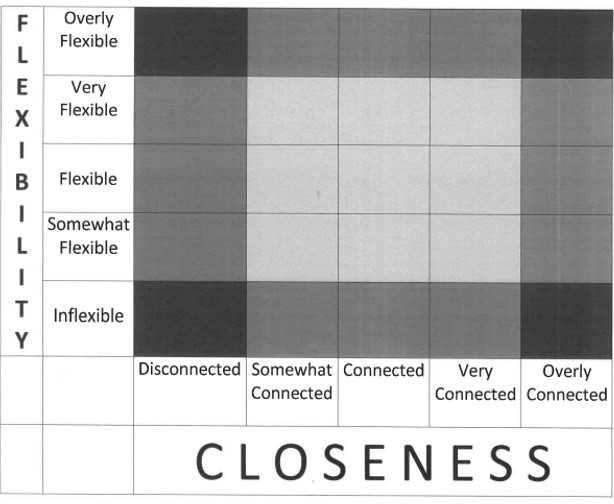“Messy Spirituality… Unbelievable Teachings” – John 6:51-69
Introduction – deck chairs
There is a Peanuts cartoon (by Charles Schulz) that starts with Lucy at her ten-cent psychology booth, where Charlie Brown has stopped for advice about life.
She says, “Life, Charlie Brown, is like a deck chair. Have you ever been on a cruise ship? Passengers open up these canvass deck chairs so they can sit in the sun. Some people place their chairs in the rear of the ship so they can see where they’ve been. Other people face their chairs forward… they want to see where they’re going. On the cruise ship of life, Charlie Brown, which way is your deck chair facing?”
Looking befuddled, Charlie replies, “I’ve never been able to get one unfolded…”
On the cruise ship of spirituality, and maybe especially Christianity, which way is your deck chair facing? Despite the surplus of instructors, pastors, teachers, and gurus out there eager to explain God’s plan for the placement of your deck chair, do you sometimes feel like you can’t even unfold it? When you open up your Bible… anywhere… do you get that befuddled Charlie Brown look on your face? When you listen to a sermon, does it go over your head, or in one ear and out the other? When you try to pray, do words refuse to come to your mouth, or even to your heart? When you’re supposed to be singing, does your mind travel elsewhere – to planned afternoon activities, to a previous conversation, or to a person that you can’t stop thinking about?
1. Messy Spirituality
You know, for as long as I can remember, I have wanted to be a godly person. I went to Sunday School when I was a kid. Then I went to confirmation classes. Although I would say that my parents made me go, it was good, and I started memorizing Bible verses and getting to know God through His interactions with people in the Bible. In high school and youth group, my faith became my own. I wanted to know God better so I took part in youth group Bible Studies. I studied to be a teacher, but that didn’t seem to be enough… I wanted to serve God more fully, saying thanks for His overflowing grace. I went back to school, studying to be a pastor. I didn’t want to be a Billy Graham or a Martin Luther. For the last 37 years, I have been content to be a parish pastor in relatively small to medium sized congregations. I have been trying to follow Christ most of my life. But I haven’t exactly been a superstar follower. Sometimes I’m a stumbling, bumbling, clumsy kind of follower. I haven’t been a model father. I have failed in various ways in my marriage. I have said and done things that have hurt people in my churches. The recent developments in Canada have uncovered some of my own prejudices. My prayer life has not exactly sped along in overdrive… more like mediocre meandering. And I will stop short before telling you about the sins that continually heckle and torment me. Sometimes, far from facing the front or the back of the Christianity cruise ship, I have struggled to unfold my chair.
I kind of guess that some of you, maybe a lot of you, well, probably ALL of you can relate to what I have just said. And that is to say that following Jesus, spirituality, is a messy kind of business – always has been, always will be. Think about it… “spiritual” is a word that is commonly used by Christians to describe people who pray all day long, who read their Bibles faithfully, who never get angry or rattled, who possess special powers, and who have the inside track to God. “Spirituality” is a word that reminds us of “saints” who have forsaken the world, taken vows of poverty, and isolated themselves in cloisters. So… is there a spirituality for us common, ordinary, broken, screwed-up people who couldn’t be Godly if our lives depended on it?
2. The Bible’s “messy spirituality” people
The answer is “YES” and it’s found in the Bible as we read about imperfect, nonreligious people, who, in the end, reveal to us that ANYONE can be spiritual.
After the flood waters receded, Noah triumphantly left the ark and… got drunk, and got naked – not exactly a model man of God. But he had found favour in the eyes of the Lord. He was spiritual.
Jacob was a liar, a trickster, a deceiver, but God changed his name to Israel and made him the ancestor of God’s covenant people. He was spiritual.
While he was king, David committed both adultery and murder. He is described as a man after God’s own heart. Not many of us would describe him in that way. Not many of us would hold him up as someone to be imitated. But David was spiritual. Read the Psalms and you’ll find out.
When we turn to the New Testament, we read about Zacchaeus, that cheating tax collector who one day invited Jesus over for dinner, changed his tune, gave away half his possessions, and became a faith-full and spiritual son of Abraham.
Paul had it in for those faith-less Israelites who followed that Jesus guy. He was threatening them, and arresting them, and taking them to prison… until he personally met that risen Jesus guy and became the outspoken great missionary of Jesus to southeast Europe. No one can argue that Paul wasn’t spiritual.
But for every one of those people and for dozens more in the Old Testament and the New Testament, spirituality was messy.
3. Hard teachings…
a. in the Bible
I think that every bona fide, Bible-believing, Christ-following person who wants to know God better and to live a Godly life still has trouble with certain things about God in the Bible and about the Christian faith. What are some of the hardest teachings of Christianity for you to accept? I have been leading a small group of people who are reading through the Bible from front to back, and one of the things some of those people struggle with the most is how God, in the Old Testament, calls for the mass destruction of various people groups all so that the Israelites can settle the Promised Land.
Maybe you have a hard time with that unbelievable 6-day creation account from the Bible, when the scientific evidence “proves” the Big Bang creation and evolution alternative. Did a flood really cover the entire earth? Did Jonah really survive inside a whale for 3 days? How could Mary have still been a virgin when she gave birth to Jesus? Is there truly life after death – sounds too good to be true!
b. of Jesus
There were people who had a tough time with what Jesus was saying. Most of those people were the pharisees and religious leaders of the Jews. Jesus was saying that blatant sinners – using today’s terminology “those with messy spirituality” – would enter the Kingdom of God before those apparently holy and righteous religious people. Those same religious people had a tough time with what Jesus was doing – healing people on the Sabbath, not following the ritual laws of cleaning, and hanging around with those messy people – prostitutes, tax-collectors, lepers. But the religious people weren’t the only ones who were challenged by Jesus. In Mark 10, Jesus said to a rich man who inquired about discipleship: “Sell all your belongings, give them to the poor, and follow me.” That rich man walked away from Jesus with a sad and downcast face, because he couldn’t accept Jesus’ tough teaching.
Now, in John 6, we find that some other people walked away from Jesus because they had a tough time with what He was teaching. The chapter started with Jesus feeding a crowd of 5,000 with five loaves of bread and two fish. Actually, the crowd was likely 4 or 5 times that many, because the 5,000 were just the men. That miracle led to a long section of Jesus teaching. It started with, “I am the bread of life,” continued with “I am the living bread that came down from heaven,” and included the messy, offensive statement, “Unless you eat the flesh of the Son of Man and drink His blood, you have no life in you.”
So, be honest… is that one of the teachings of Jesus that you find hard to swallow? When we think about that in the context of Holy Communion, our doubting minds can’t fathom Jesus’ flesh in the bread and Jesus’ blood in the wine. Our imaginative minds are quite naturally drawn to pictures of cannibals boiling a missionary in a big vat of water. If you find that teaching challenging, you are in good company. As we read in John 6, many of Jesus’ disciples considered it a hard saying, and many of them no longer followed Jesus. (Now, just to clarify, it wasn’t Jesus’ twelve disciples that left, but some other people from the larger crowd that hung around Him.) This teaching of Jesus was a deal-breaker for them.
You know what a deal-breaker is… it’s when a young man is thinking about proposing to a young woman but then he hears that she doesn’t want to have children – that’s a deal-breaker for him, and he breaks off the relationship entirely; it’s when your boss at work asks you to turn a blind eye to the promotion he is planning to give his undeserving son-in-law – that’s a deal-breaker, and you quit your job.
For these wanna-be disciples in John 6, eating Jesus’ flesh and drinking His blood was a discipleship deal-breaker. They allowed reason to overtake faith; they permitted human thought to outdo divine words; they chose logic over mystery. And let me tell you that while it is not wise to turn off our brains entirely when it comes to believing, we do need to give mystery a place in our relationship with God. After all, we can’t even see God, so He, Himself, is mysterious. The Triune God is a mystery. The virgin birth of Jesus is a mystery. The forgiveness and new life in Baptism is a mystery. If we take away all the mystery, we couldn’t really call it a Christian FAITH!
So, we have the detractors with their logical, doubting, deal-breaking, messy spirituality response: “This is a hard teaching… who can swallow it?”
4. Peter’s response
a. Sometimes messy, sometimes spot-on
Then, in contrast, we hear Peter’s response. Not to say that Peter’s spirituality wasn’t messy at other times – When Peter had to be convinced to go out fishing one morning, and then Jesus had enabled him and his fishing buddies to catch a boat-load of fish, Peter admitted, “Lord, I’m a sinful man.” When Peter was befuddled at Jesus’ transfiguration appearance with Moses and Elijah, and didn’t know what to say, he managed to say, “I’ll build three tents so you can all stay here.” When, at the last supper, Jesus predicted that all His disciples would abandon Him, Peter piped up, “I’ll never deny you, I’ll die with you.” But at other times, Peter’s understanding was spot-on – When asked who the disciples thought Jesus was, Peter boldly declared: “You are the Christ, the Son of the Living God,” and when an apparent phantom walking on the water identified himself as Jesus, it was Peter who courageously said, “Lord, tell me to come to you on the water.”
On this occasion, when the detractors turned away from Jesus, Peter’s response was again solid. Jesus first asked, “So, have you Twelve had enough, too? Was that teaching too difficult for you? Are you done with me, are you leaving?”
b. “Lord”
Peter replied with the word, “Lord.” Right off the bat that indicated a relationship, a trusted relationship with this unique man that he had followed already for a year or two. Peter could have called Jesus “Rabbi,” and the disciples had used that term before, for Jesus was their teacher. But Peter called Him “Lord” to indicate Jesus’ divinity and authority, and Peter’s trust in Him.
c. “To whom?”
Then Peter says, “to whom shall we go?” That’s like saying that no one compares to Jesus. There is no other rabbi, no other prophet, no other religious leader of any kind that carries the authority and strength that Jesus carries. When the Israelites had crossed the Red Sea, part of their victory song proclaimed, “Who is like you, O Lord, among the gods? Who is like you, majestic in holiness, awesome in glorious deeds, doing wonders?” Psalm 115 and Isaiah 40 also declare the greatness of God, saying that gods of silver and gold made by human hands pale in comparison to the true God who made the heavens and the earth, and who rules the world with power and justice. In the same way, Peter is saying that there is no other religious authority that he would even consider listening to and following. And why is that?
d. “Words of eternal life”
Peter understands that Jesus has the “words of eternal life.” Jesus had just finished saying the same thing: “The words that I have spoken to you are spirit and life.” He had said that to Nicodemus in their night-time conversation: “Whoever believes in the Son of Man has eternal life.” He would say something similar to Martha a few months later, after her brother Lazarus had died, “I am the resurrection and the life; whoever believes in me will live.” Jesus’ words were not just about superficial conversation – the weather, Olympic results, and the latest pandemic numbers. Jesus’ words had meat to them: “Whoever feeds on this bread will live forever,” and “Whoever drinks my blood has eternal life, and I will raise him up on the last day,” and “My flesh is true food, my blood is true drink,” and “Whoever believes has everlasting life,” and “Whoever comes to me will neither hunger, nor thirst.” On a couple of notable occasions, Jesus’ words forgave the sins of individuals that He encountered. In order to back up the forgiveness part, Jesus did something, put His money where His mouth was, He put His body behind what His mouth said. Jesus died, He sacrificed His body and spilled His blood so that YOU would BE forgiven of all your sins, and so that the “eternal life” words would be backed up by deeds. Peter knew that Jesus had those words of eternal life and he would soon see that Jesus also lived out the actions of eternal life.
e. “You are the Holy One of God”
Next, Peter said “we have believed and we know that you are the Holy One of God.” Oh, yes, in our messy spirituality there are some hard things to comprehend, but we believe… we acknowledge the mystery, and we believe… sometimes, like the dad who was called upon to believe that Jesus would heal his son, we say: “I believe, help my unbelief!” “We know that you are the Holy One of God.” – that was similar to Peter’s confession, “You are the Christ, the Son of the living God,” and it was similar to Thomas’ post-Easter confession, “My Lord and my God.” No matter how hard the teaching, no matter how challenging to understand it all, no matter how messy our own spirituality is, that’s the main thing… to keep Jesus as the undisputed Lord and Saviour and center of your life.
5. Keep Jesus as your Lord and Saviour
That’s what John 6 points to today. You see, Peter – like Noah, and Jacob, and David, and Zacchaeus, and Paul, and like you and me – Peter had a messy, confused, sinful spirituality. But that day he got it right. Jesus, the incomparable Holy One of God has the words of eternal life. My spirituality is up and down, here and there, sometimes confused, sometimes uncertain, always messy in its own way. Yours might be, too. But the main thing is to keep Jesus as the Lord and Saviour of your life, because in that simple truth anyone can be spiritual, and everyone can be saved.
Jesus accepts people who have a messy spirituality, who don’t have it all together, who don’t believe every last word that He said. Don’t let any of those things cause you to turn back from following Him. Come, follow the incomparable Jesus, come, be his disciple, for He has the words of eternal life and He gives the reality of eternal life. Amen.
“Teaching Children to Get Along” – Ephesians 4:17 – 5:1
Introduction – kids and summer
This is every kid’s favourite time of year, isn’t it? Summer!! – when you can sleep late, hang out with your friends, do pretty much anything. We don’t have small kids at our house anymore, but we can hear the splashing of the children kiddy-corner across our back yard as they enjoy the pool that was installed last year. When we were at Katepwa Beach a couple of weeks ago, the children were having the most fun – building sand-castles, running into the lake, and generally just having a good time. Last Sunday, we attended an outdoor concert in Abbotsford. The children were having a blast sliding down the grass on toboggan sized hills on their stomachs. (I’m not sure their parents were going to have a blast doing the laundry the next day.) Last month, the children at our Bible Camp had a lot of fun singing, playing games and learning about Jesus.
This is a great time to be an adult, too. Things are easing up after an 18-month long exile in a pandemic. Work might be happening on a more relaxed schedule, and not always and only on the computer. You can do things. You can meet up with family and friends once again. You can load up the kids in the van and go places. You don’t HAVE to wear masks anymore. The weather’s been… HOT!!
As you watch children interact with each other, it’s interesting isn’t it? Sometimes they cooperate and play well together… sometimes not so much. After all, they are sinful, just like everybody else. What wouldn’t we give to find the formula for children to get along with each other! As with most things, there are two different views when it comes to raising children – the permissive approach and the authoritarian approach. Wise parents look for something in between the two.
1. God our Father, we His beloved children
Our heavenly Father is the wisest parent, and in our Epistle reading this morning, He teaches His children to get along. He knows the best of all teaching methodologies, and that means neither extreme, but the strength of both approaches. Human parents can draw some very good advice from this word of God, but God isn’t really speaking to us as parents. He’s speaking to all of us as children, His children.
That is evident as Ephesians chapter 4 transitions into chapter 5. Paul writes, very briefly and clearly: “Be imitators of God, as beloved children.” We are children of God – all of us, at every age. As I mentioned last Sunday, that was clear in the first 3 chapters of Ephesians where Paul wrote that we are adopted children of God, that we are forgiven, and blessed, and made alive, and saved by God’s grace, that we are not strangers and foreigners but members of God’s household, and that we are named with the very name of our Heavenly Father. We ARE children of God by faith in Christ Jesus. At the end of chapter 4, Paul adds one more detail: we are sealed as God’s children. The Holy Spirit did that in our Baptisms. You may not remember it for yourself, but you have probably seen it in other Baptisms… that a child or an adult is marked – on the forehead and on the heart – with the cross of Christ to show that God puts His seal of grace and blessing on us.
2. Our Father teaches us
By that act, God also takes responsibility for raising us, for teaching us those things a parent teaches a child… like how to get along with one another. The first three chapters of Ephesians were theology – what we believe about God, and who we are in Him. The last three chapters are about putting that theology into practice. They emphasize how we are to live with our fellow Christians, the rest of God’s children. You see, just like kids, we sometimes get along well, sometimes not so well. Kids may argue about who gets to bat first, or who gets the best seat in the car for the first leg of the road trip, and kids may complain and cry because they got surprised with a water balloon right on the chest with water splashing all over their face. Adult squabbles are similar but take on a more mature (or is it a less mature) trajectory. Instead of shouting over who gets to bat first, adults may hurt another person’s reputation by gossiping. Instead of fighting for the best seat in the car, adults fight for the best job in the company. Instead of soaking each other with water, adults find it easy (and tempting) to soak someone else with verbal abuse. Those kinds of behaviour are no more acceptable among adult Christians than they are among kids on summer vacation. How does Paul say it… “Don’t live any longer as Gentiles do.”
[Side trip: “Don’t live as Gentiles do.”]
[Now, this really merits a little explanation. Ephesians 2 was about God in Christ breaking down the barriers between Jews and Gentiles. Jewish people generally had this us/them mentality – us, the Jews, the chosen people of God, and them, the Gentiles, the wicked and unbelieving and rejected ones. Paul wrote that Jesus made peace between the two through His blood shed on the cross. In Christ, there was no longer any distinction – they were all God’s children. So, why say, “Don’t live as the Gentiles do,” when in fact the Ephesians were generally all Gentiles – that is, not Jewish? The answer is that Paul really created a third grouping of people. There were still Jewish people who followed the Old Testament rules and regulations, people who didn’t accept Jesus as the Messiah. Then there were followers of Jesus – both of Jewish and Gentile origin. The third group was still called Gentile, but called Gentile because they were immoral, unbelieving and far off from God. Paul is saying, “Don’t live like them,” which is really saying, “Don’t live like you Gentiles used to live before you became children of God through faith in Jesus.” He goes on to say, “Put off your old self, your corrupt and deceitful self, and put on your new self that was created to be holy and righteous like God, Himself.” I guess that’s like saying, “Like father, like son, like daughter,” or “Be imitators of God as His beloved children.”]
3. Not the permissive extreme
OK… so God intends for us to be like Him – kind and forgiving instead of bitter and angry. How do parents make that happen with children in the context of their household? How does God make that happen in the context of His family?
Remember there are two approaches. In the extreme permissive approach, the parent gives a lot of responsibility for development to the child. The parent lets the child learn on his or her own how to get along. The idea is that independence lets the child develop his or her creativity to the fullest. Every day becomes a summer free for all. Unfortunately, children who grow up in such totally permissive homes often develop an egocentric “me first, me always” view that leads way past water balloons. What’s more, children in such environments often develop resentment for parents who don’t seem to care enough to provide guidance and parameters for behaviour.
a. He cares, and He grieves
God certainly doesn’t take this laissez-faire “anything goes” attitude with His children. He cares. He really cares for His children. Paul says that the Holy Spirit can be grieved by God’s children when they sin. The Holy Spirit teaches us God’s will, and He grieves when we ignore it. The Holy Spirit shows us God’s love, and He grieves when our lives don’t reflect that love.
Human parents grieve: when their son or daughter intentionally hurts someone else’s child; when their child rejects the morals and values of their home and everything the parents have done for him, storming out of the house at age 18, vowing never to come back; when their child takes a self-destructive path in life, abandoning God and pursuing addictive behaviours and life-styles.
In the same way, the Holy Spirit grieves when God’s children hurt one another physically or emotionally, when we reject everything God has done in creating, redeeming and caring for us, when we hurt ourselves by falling into self-destructive sins. God cares about us too much to sit back and see whether we’ll learn how to get along on our own. He doesn’t take a “children will be children” attitude when Christians hurt one another.
b. Some “dos” and “don’ts”
He definitely has some dos and don’ts for getting along. Listen to the end of Ephesians 4 again: “Let all bitterness and wrath and anger and clamor and slander be put away from you, along with all malice. Be kind to one another, tenderhearted, forgiving one another…”
It is inconsistent with the Christian faith for believers to fight, to carry grudges, to talk evil about other believers. God does not permit these things. A couple of verses earlier, Paul stated a great principle for any marriage relationship, any family relationship: “Do not let the sun go down on your anger.” If you go to bed angry with your spouse, you will both stew about it, lose sleep, and probably wake up still angry with one another tomorrow morning. Resolve any ill feelings before you close your eyes for the day. Then you can sleep with a good conscience. Those are the don’ts. The dos are: be kind and compassionate and forgiving. Practically that would be caring for those who are grieving the loss of a loved one, supporting those who are feeling weak and those whose lives are floundering, and bearing with the sins and failures of a Christian brother or sister. God is no “sit back and watch” permissive parent. He cares, He longs, He aches for us to be kind and compassionate. By His commands He actively teaches us to get along.
4. Not the authoritarian extreme
On the other hand, neither is God a parent of the other extreme approach – a strict authoritarian. You know what that approach is like – lots of rules… “do it because I said so,” and “if you don’t, you’re going to get it.” This approach gets outward compliance but inner resistance, and more resentment than the permissive model. As soon as the threat is gone, the compliance stops.
a. The Family Map
When I do marriage preparation classes with a couple, one of the pages of the report includes their responses to statements about the family they grew up in. Have a look at this Family Map.
Along the bottom axis is a set of words that describe how close the family was – from the overly connected extreme, doing everything together, to the disconnected extreme, with four or five pretty separate individuals just living in the same house. Along the left side are words that describe flexibility, and this is really the permissive / authoritarian continuum. Overly flexible along the top refers to a lack of rules, with the inflexible row at the bottom being about lots of rules, very defined roles of the parents, with very little change. It’s desirable – according to the psychologists who developed the statements and the chart – to be in the middle section on both axes: close but not too close, flexible but not too flexible.
b. Not rules that lead to resentment
God doesn’t want grudging outward action, a resentful following of the rules, so He doesn’t adopt the extreme authoritarian approach with only rules. He wants hearts, so He brings about loving outward action by working inwardly… on our hearts. He showers us with huge doses of love. We are called BELOVED children. He proved His love for us when Christ gave Himself up for us as a sacrifice. That’s the greatest demonstration of love, isn’t it? – giving up one’s own wants and desires for the beloved, giving up one’s own life for the beloved! And that’s what Jesus did – dying on the cross for us because God loves us. Jesus’ death and resurrection removed and forgave the sin that separated us from Him. Oh, when it comes to dos and don’ts, we DON’T have to do anything for our salvation, because Jesus DID it all on the cross.
c. A fragrant offering
Paul calls that sacrifice of Jesus a “fragrant offering.” What is your favourite smell? Apple pie fresh from the oven? Clean laundry from the drier? A just-bathed baby? Coffee? Bacon? A steak on the grill? The smell of wet soil after a rain?
For people familiar with the Old Testament Jewish faith, a fragrant offering may remind them of the smoke of incense that was to represent the prayers of the people rising up to God, or maybe the smoke of burnt offerings that were sent up to God as a pleasing aroma. Jesus’ offering of Himself as the sacrifice for our sins was a pleasing aroma to God.
5. Imitate God / God’s love
That love of God for us teaches us to love one another. We are called to imitate God, to imitate His love. The Greek word for “imitate” is where we get our English word “mimic.” That’s the way children learn, isn’t it? They hear their parents speaking and they learn to mimic the sounds. They see a brother or sister sharing, and they begin to share. They see Dad saying sweet things to Mom, and they learn to encourage and compliment. They see family members helping each other around the house, and it rubs off on them. We learn by imitating.
God uses that same technique on us. He teaches us by example how to get along. He wants us to love, so He loved us first, and richly, lavishly. He wants us to forgive, so He shows us how by first forgiving us. Even more important, God’s love and forgiveness motivate us to love and to forgive and to get along.
They say that a child learns what they live. If a child lives with criticism, she learns to condemn. If a child lives with hostility, he learns to fight. If a child lives with ridicule, she learns to be shy. If a child lives in a house of ill will, not only will he not learn how to love, but he won’t want to. The anger he’s received will be anger that has to come out. That means that the corollary is also true – a child lives what they have learned.
But a child who grows up in a loving family wants to be nice to other kids, wants to love other people. We Christians are all growing up in the most loving family – not a perfect family, but a family with a perfectly loving Heavenly Father. In spite of all our sins, we are loved. In spite of our unworthiness, we are blessed every day. In spite of our “bitterness and wrath,” “anger,” “clamor,” “slander” and “malice,” all who put their trust in Jesus and His fragrant offering have eternal life. That kind of love motivates us to get along nicely with our brothers and sisters. Amen.







